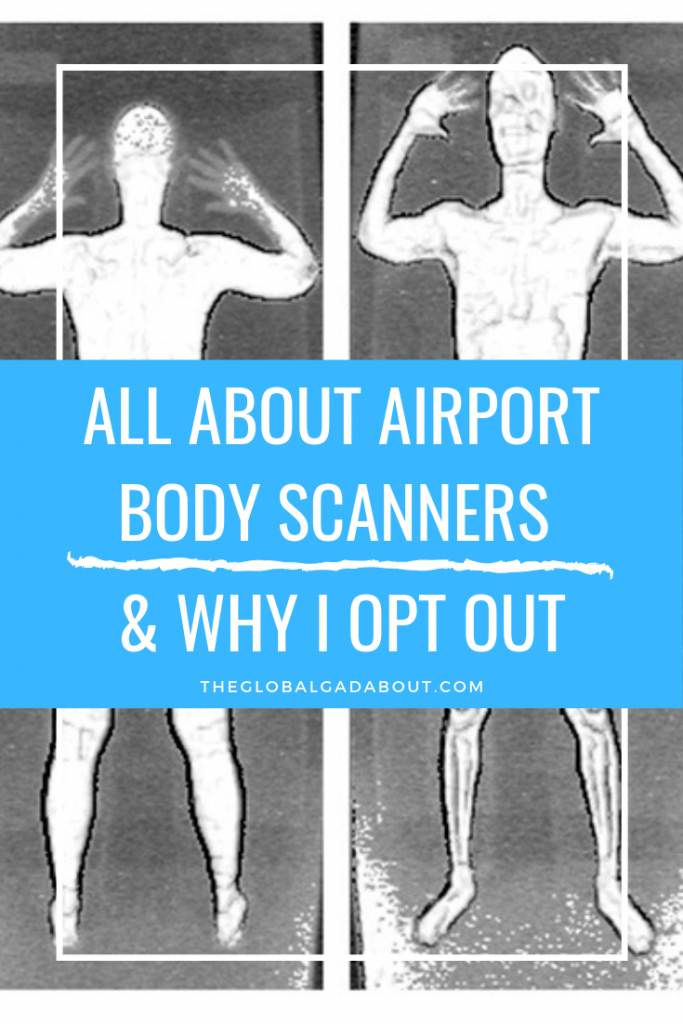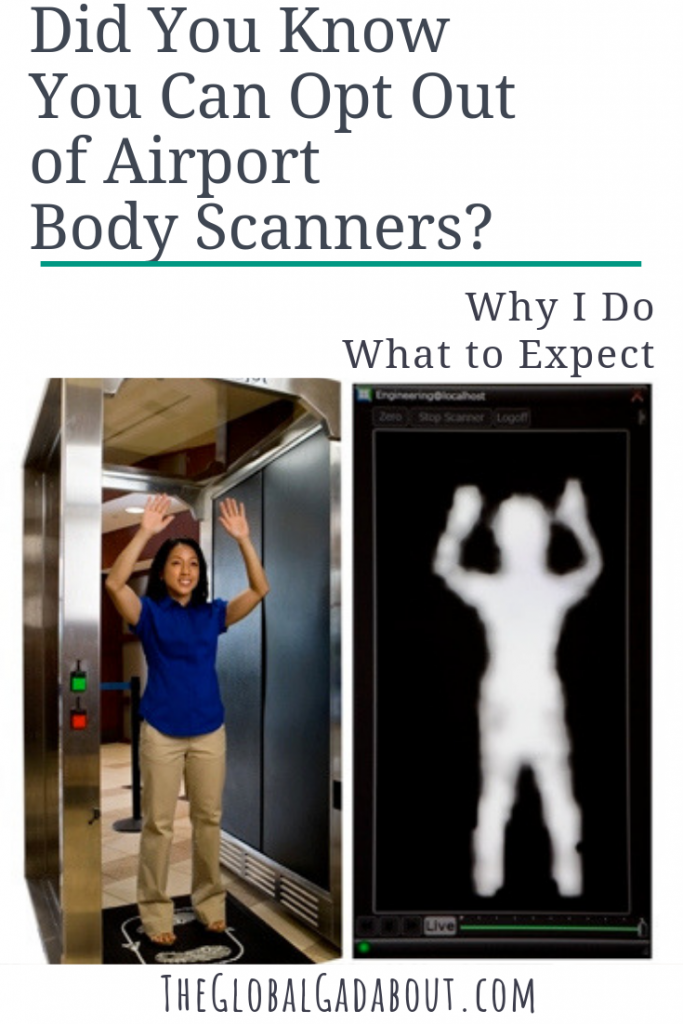Full-body scanners have been added to or replaced metal detectors at many US airport security checkpoints. This new technology has been a bit, shall we say, controversial. Health and privacy concerns battle against efficiency and effectiveness. There are arguments for both sides.
What many people don’t know is that these body scanners are not mandatory. You can “opt out” and not have to pass through them to get on your flight. Of course, opting out means you do have to face an alternative security procedure that many or may not be worth it to you.
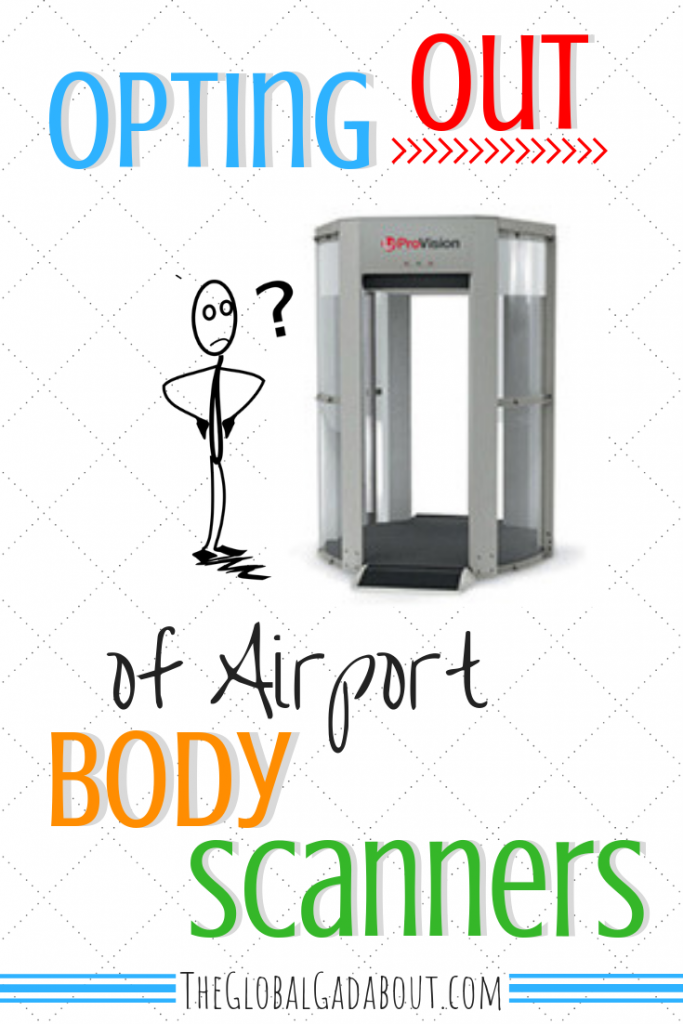
Personally, I always opt out. I’m not trying to pressure anyone else to opt out here, definitely make up your own mind! I just want that decision to be as informed as possible. So read on for all the details about the controversy, why I opt out, and what happens when you do!
How Do Full-Body Scanners Work?
The TSA currently uses something called AIT, Advanced Imaging Technology or “millimeter wave” scanners. They bounce electromagnetic waves off a person to reveal any potential items hidden under their clothes. They can detect metal, ceramic, plastic, chemical, and explosive materials.
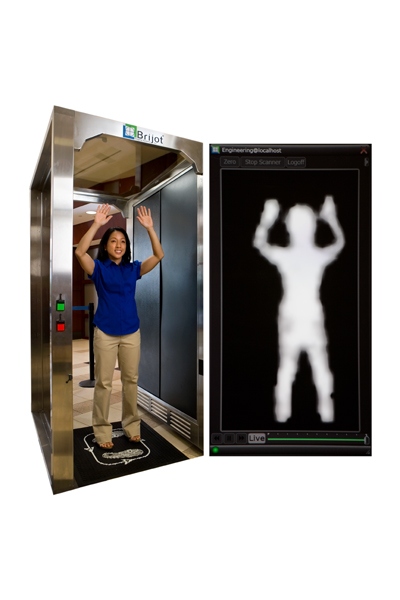
Why TSA Prefers Them
They are thought to be more effective at identifying potential weapons than metal detectors because non-metal items will also show up. They are a less intrusive way to ensure these items are found without the need for pat-downs.
Do You Show Up Naked?
When they first started using full-body scanners in 2008, there were a lot of complaints and backlash centered around the fact that the image these “backscatter” machines produced basically shows the person naked. This is a concern for privacy and modesty.
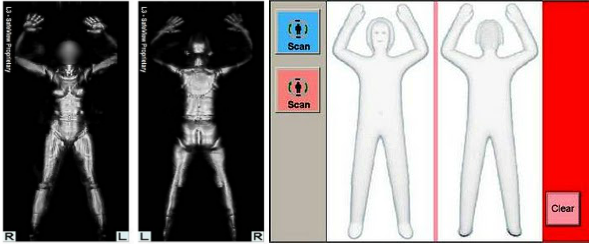
However, since 2013, the TSA has switched to a different version, the “millimeter wave” machines, that do not create the same “naked” image. TSA agents see a generic, cartoon-like outline of a human body with any potential areas of concern indicated in yellow. If any yellow shows up, they will pull the passenger aside for a pat-down. The machine algorithm identifies concealed items rather than a human scrutinizing an image.
Do They Cause Cancer?
The carcinogenic effect of the radiation used in full-body scanners was another of the biggest concerns when they were first introduced. Experts did agree that while the risk was minimal, there was a small risk that passing through a “backscatter” x-ray scanner could increase your likelihood of contracting cancer. They used ionizing radiation, which breaks apart molecules. This may be why the original machines were quickly banned in Europe and possibly a big contributor to their eventual phase out in the USA.

The current “millimeter wave” versions, on the other hand, emit such a low level of non-ionizing radiation – something akin to your microwave oven or mobile phone – that most experts agree that there is no significant increased risk of cancer by using them. There are still some studies and experts that advise against them. One major argument being that despite the very minimal amount, exposing humans to any level of radiation should not be undertaken unless there is a greater medical benefit. Beyond cancer concerns, there’s also a small possibility of skin and eye damage, though all three are generally accepted to be minimal beyond the point of significance.
Why I Opt Out
I’ve been a frequent flyer for so long, part of it is just habit from the days when the much more intrusive and risky “backscatter” versions were the norm. I think the privacy and health concerns at that time were more than enough for me to opt out. With the current technology, I’m not as worried about putting my body through them as I once was. However, this is all still very new technology and the long-term effects have yet to be shown. As we are being exposed to more and more radiation (cell phones, wifi, microwaves, etc.) everyday anyway, I agree body-scanners might not seem significant. But if I can err on the side of safety and minimize my radiation exposure, why not?
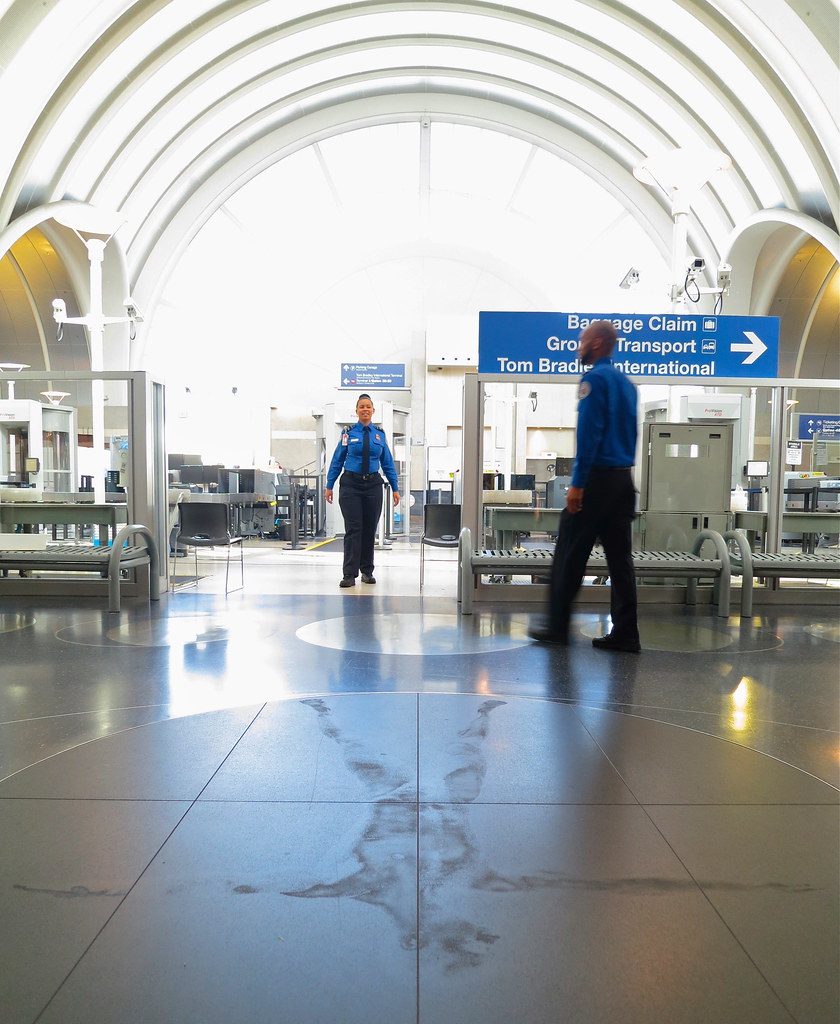
In a bit of the same vein, part of me opts out as a personal protest. While I understand the security issues and appreciate the effort to minimize threats, I’m not sure the balance between security, cost, effectiveness, privacy, and hassle is optimal. When it comes to my life, I value quality over quantity. The odds that I will be on a flight with a terrorist issue are very low, while the odds that security procedures will increase my stress-level and negatively affect my health are quite high.

Partially (well, mostly?) due to the incredible emphasis on security, the experience of flying in the US has become horrendous for me. Ok, that might be hyperbolic, but I will gladly spend all day on a bus rather than take a 2-hour flight because flying is such a pain. Availing myself of the loophole in their system is my little way of showing how I feel about this, even though I’m sure it doesn’t make any kind of real impact. That’s why it’s a personal protest.
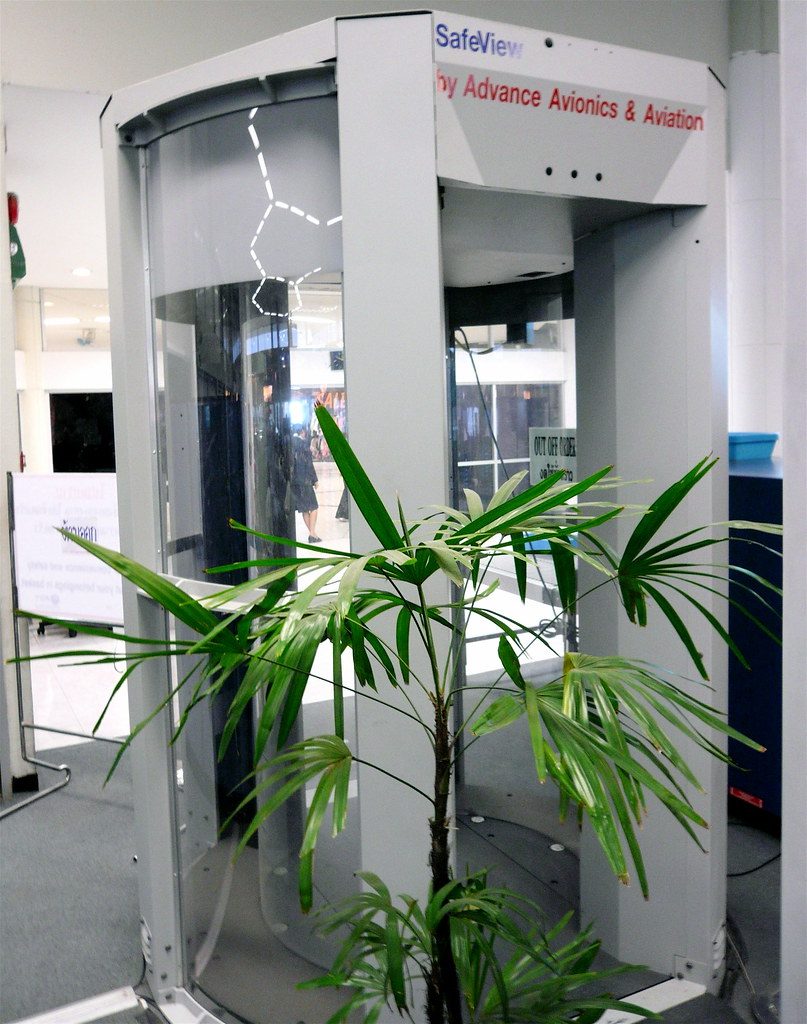
On a larger scale, there are other issues with these machines. One full-body scanner costs around US$150,000 versus approximately UD$30,000 for a metal detector. Are they quicker and more effective enough to justify spending five times as much? Sure, metal detectors are not 100% effective in preventing issues but neither are full-body scanners! With every advance in technology, people come up with equally genius ways to render it useless. These scanners have not been proven to be any better at preventing terror attacks while there have been issues with false-positives. One report in Germany showed an over 50% false positive rate due to the machine flagging things like “sweat” as an area of concern.
Basically, it boils down to: I don’t like what these machines represent. Given the option to avoid them, I will. Though I don’t rule out changing my mind in the future.
What Happens When You Opt Out
This may very well deter many people from opting out, especially now that the health and privacy concerns are minimal. If you opt out of a full-body scanner, you will receive a full-body pat-down instead.
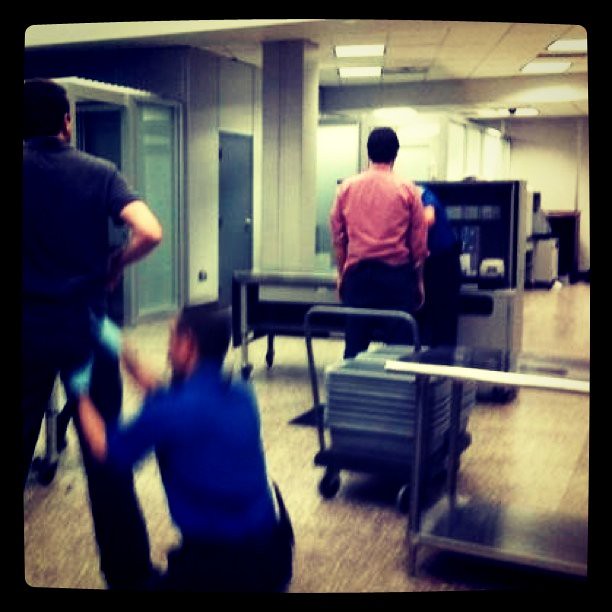
If you wish to opt out, send your luggage through the x-ray machine as normal but when it’s your turn to go through the scanner, simply tell the agent manning that station that you would like to “opt out”. They will ask you to step out of the way and wait until a same-sex agent becomes available to pat you down. Normally, this doesn’t take more than five minutes or so, though I did wait about 15 minutes once.
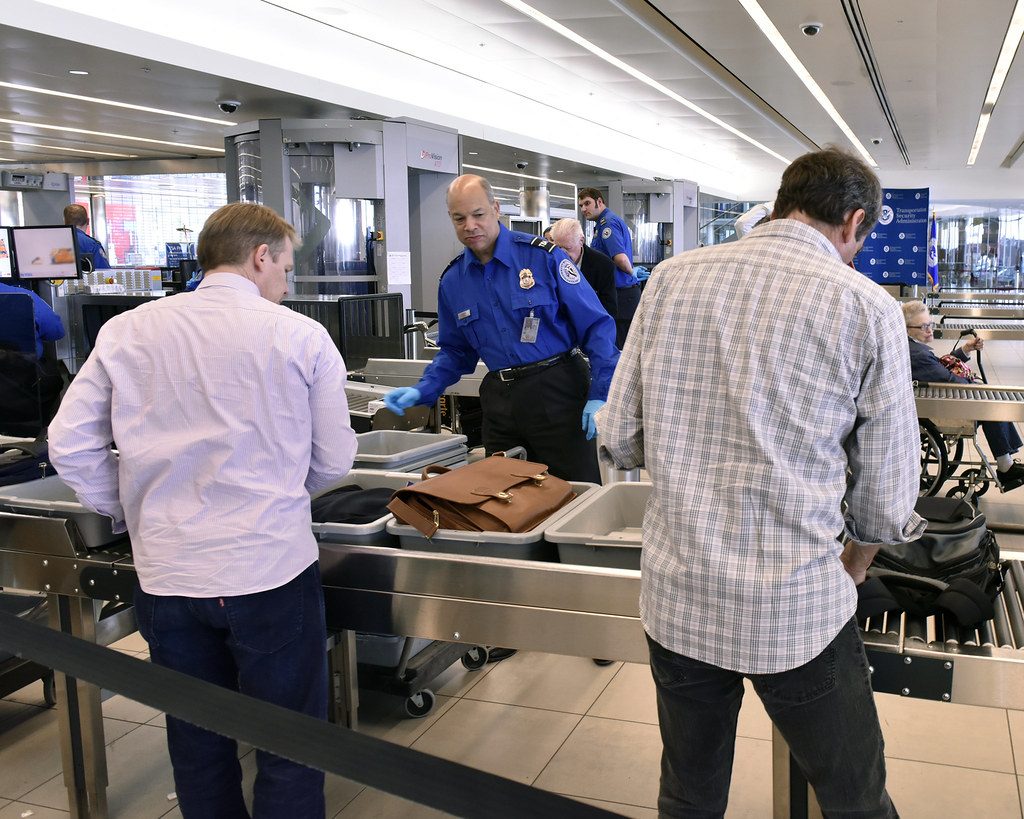
The assigned agent will open the gate and take you through to the other side of the security barrier. They will ask you to point out your luggage coming through the x-ray machine. Point to your luggage, don’t try to pick it up. The agent will carry it for you. Maybe so you can’t move something from your unscreened body to your screened luggage?
There is a standard speech they will deliver to you, including the fact that they will pat down your entire body, use the back of their hand for “sensitive areas”, and run their hands along your waistband. Don’t worry, they will be wearing gloves. They will also give you the option to perform this pat-down in a private room where other travelers cannot see you. I’m not shy about bodies and touching, so I’ve never bothered taking them up on this offer but it’s there if you are worried or embarrassed.

The agent will ask you to stand with your legs apart and arms out to the sides, like the Vitruvian Man. They will very quickly and efficiently run their hands up and down your arms and legs, along your stomach and back, and yes, along your bottom and right up to your crotch. They may also pat your head or squeeze a bun if you have a lot of hair. The whole process is very fast and professional.

You will have to wait another minute or so while they test their gloves for suspicious residue. When they test clean (hopefully!), they’ll tell you you’re all set and you can pick up your bags, shoes, and whatever else you had to remove to go through the x-ray machine and be on your way!
I totally understand how this process could be embarrassing, worrying, or even traumatic for some people. If you’re one of them, I hope your concerns about the body scanners are not as worrying, because those are your options! Opting out is definitely not for everyone. It is certainly more of a hassle and a process and it singles you out to other travelers and to TSA agents. But it is an option you have the right to take advantage of if you so choose.
Tips for Opting Out
This is an inconvenience for TSA agents, so be prepared for negativity, strict rules, and short tempers. Understand that your opt-out request makes you stand out and possibly seem like a higher risk. Which is why you should…
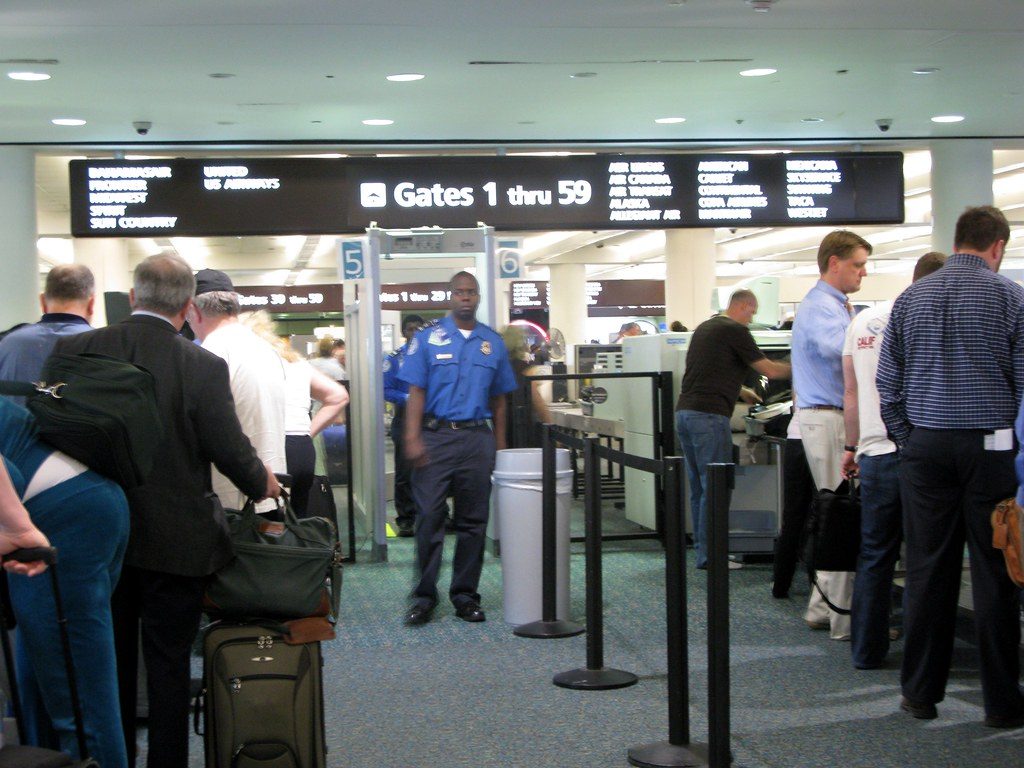
Smile, be friendly, casual, and polite!
Allow extra time to pass through security. You have to wait for an agent to be available for a pat down or for a same-sex agent to come over, plus the extra time of the pat-down itself.
Stand where and how they tell you to when they tell you to. If you didn’t hear or understand, it’s perfectly fine to ask politely for clarification.
If both a metal detector and a full-body scanner are being used and you are selected to go through the body scanner, don’t ask to go through the metal detector instead. In my experience, this just made them more upset and suspicious. You will not be allowed to switch.
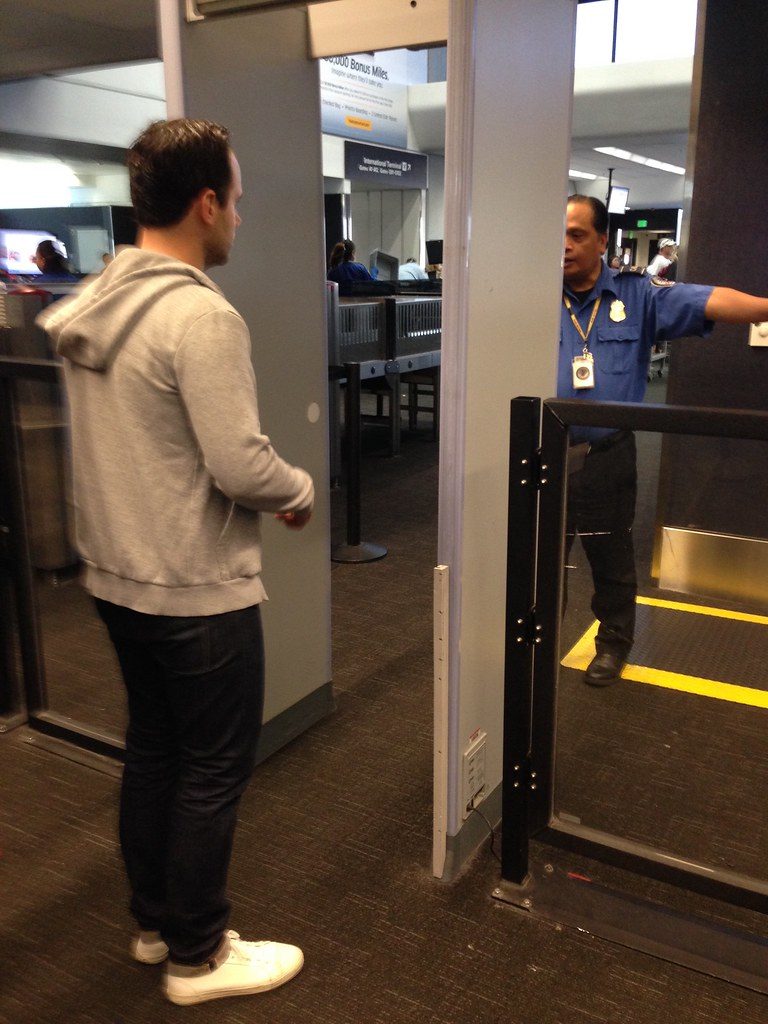
Try not to take it personally if it seems like the TSA agent is deliberately making you stand out or making the process tedious or difficult for you. I’ve never felt persecuted or harassed but I’ve heard stories of very negative experiences some travelers have had when opting out. The only time anyone became mildly upset with me was when I asked to go through the metal detector instead. If you’re cooperative, it shouldn’t be an issue.
When other travelers see you opting out, they may ask questions. Go ahead and explain what you’re doing (quickly) and why, but don’t be aggressive or suggest they opt out, too. Let them decide.
Now that you know you have the option to opt out, what the arguments are on both sides, and what your alternative it, it’s up to you to decide 🙂
Want more from The Global Gadabout? Sign up for the newsletter and get access to exclusive printable freebies!
Pin this post for later!
